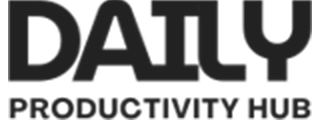Balancing work, study, and rest is one of the biggest challenges of modern life. Between remote jobs, online classes, and endless notifications, it’s easy to feel overwhelmed. But here’s the good news: the right digital tools can help you manage your time, energy, and focus so that you don’t just work harder—you live smarter.
In this guide, we’ll explore the best digital tools to balance work, study, and rest, how to use them effectively, and how they can help you avoid burnout.
Why Balance Matters in a Digital World
- Productivity without exhaustion → working non-stop isn’t sustainable.
- Improved learning retention → breaks help the brain consolidate knowledge.
- Better health → lack of rest leads to stress, sleep problems, and reduced focus.
- Long-term success → balance ensures consistency over time, not short bursts of energy.
👉 Digital tools can act as your personal assistant — helping you structure work sessions, track study goals, and remind you to rest.
Best Digital Tools for Work, Study & Rest
1. Trello– Organize Work & Study Tasks
- Visual task management with boards, lists, and cards.
- Perfect for separating work projects from study assignments.
- Integrates with Google Drive, Slack, and more.
👉 Use Trello to keep everything in one place, reducing mental clutter.
2. Notion– All-in-One Productivity Hub
- Combines notes, databases, calendars, and project tracking.
- Build a custom dashboard for work, study, and personal life.
- Free for personal use.
👉 Great for people who want one single digital workspace instead of juggling multiple apps.
3. Forest– Focus Without Burnout
- Gamifies focus by growing virtual trees while you stay off your phone.
- Works with Pomodoro technique (25–50 minutes of focus + short breaks).
- Helps you build consistency without overworking.
👉 A playful way to keep work/study sessions balanced with regular rest.
4. Headspace– Guided Rest & Mindfulness
- Meditation and breathing exercises designed for stress relief.
- Sleepcasts to help improve rest quality.
- Short 3–10 minute breaks for mental reset during the day.
👉 Ideal for busy students and professionals who forget to rest.
5. Google Calendar– Time Blocking for Balance
- Schedule work, study, and rest like non-negotiable appointments.
- Color-coded events keep balance visible.
- Syncs across devices.
👉 Use “time blocking” → assign hours not only for tasks but also for breaks and leisure.
6. RescueTime– Track Your Digital Habits
- Monitors how much time you spend on apps and websites.
- Sends alerts when you’re overusing distracting platforms.
- Weekly reports show whether you’re balancing productivity with downtime.
👉 Awareness is the first step to balance — RescueTime keeps you accountable.
7. Sleep Cycle– Smarter Rest Tracking
- Tracks your sleep patterns using your phone’s sensors.
- Wakes you up during your lightest sleep phase.
- Provides insights to improve rest quality.
👉 Perfect for making sure your sleep is restorative, not rushed.
How to Combine These Tools for True Balance
Balancing isn’t about using every tool at once—it’s about choosing a system that works for you. Here’s an example routine:
- Work (Morning): Use Google Calendar for time-blocking + Trello for tasks.
- Study (Afternoon): Notion for study notes + Forest for focus sessions.
- Rest (Evening): Headspace for relaxation + Sleep Cycle for better sleep.
- Weekly check-in: RescueTime report to ensure balance is maintained.
Mistakes to Avoid When Using Digital Tools
- Overloading apps → too many tools create more stress.
- Ignoring rest blocks → productivity tools are useless if you don’t rest.
- Not reviewing progress → without weekly reflection, balance is lost.
Comparison Table – Digital Tools for Balance
| Tool | Best For | Price | Key Feature |
| Trello | Work & study tasks | Free + Paid | Visual task boards |
| Notion | All-in-one workspace | Free + Paid | Custom dashboards |
| Forest | Focus sessions | Low one-time | Gamified Pomodoro |
| Headspace | Mindfulness & rest | Free + Paid | Guided meditations |
| Google Calendar | Time blocking | Free | Cross-device sync |
| RescueTime | Productivity tracking | Free + Premium | Digital habit insights |
| Sleep Cycle | Sleep improvement | Free + Premium | Smart wake-up alarm |
FAQs
How do I know if I’m balanced between work, study, and rest?
If you’re consistently productive but not exhausted, learning effectively, and waking up refreshed, you’ve likely found balance.
Do I need to pay for premium versions of these apps?
Most free versions are enough to get started. Upgrade only if you need advanced features.
Can digital tools replace good habits?
No — tools support habits, but balance also requires discipline and self-awareness.
What’s the best starting point for beginners?
Start with Google Calendar for time-blocking + Forest for focus sessions. Then add other apps as needed.
Finding balance between work, study, and rest isn’t about doing more—it’s about doing smarter. With tools like Notion, Forest, and Headspace, you can create a routine that keeps you productive without burning out.
👉 Action step: Pick two apps from this list, set them up today, and test a balanced schedule for one week. Track your results and adjust — balance is a practice, not a one-time fix.

